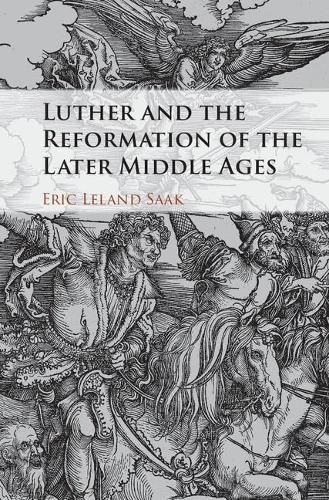Readings Newsletter
Become a Readings Member to make your shopping experience even easier.
Sign in or sign up for free!
You’re not far away from qualifying for FREE standard shipping within Australia
You’ve qualified for FREE standard shipping within Australia
The cart is loading…






In 1517, Martin Luther posted his 95 Theses, an act often linked with the start of the Reformation. In this work, Eric Leland Saak argues that the 95 Theses do not signal Luther’s break from Roman Catholicism. An obedient Observant Augustinian Hermit, Luther’s self-understanding from 1505 until at least 1520 was as Brother Martin Luther, Augustinian, not Reformer, and he continued to wear his habit until October 1524. Saak demonstrates that Luther’s provocative act represented the culmination of the late medieval Reformation. It was only the failure of this earlier Reformation that served as a catalyst for the onset of the sixteenth-century Protestant Reformation. Luther’s true Reformation discovery had little to do with justification by faith, or with his 95 Theses. Yet his discoveries in February of 1520 were to change everything.
$9.00 standard shipping within Australia
FREE standard shipping within Australia for orders over $100.00
Express & International shipping calculated at checkout
In 1517, Martin Luther posted his 95 Theses, an act often linked with the start of the Reformation. In this work, Eric Leland Saak argues that the 95 Theses do not signal Luther’s break from Roman Catholicism. An obedient Observant Augustinian Hermit, Luther’s self-understanding from 1505 until at least 1520 was as Brother Martin Luther, Augustinian, not Reformer, and he continued to wear his habit until October 1524. Saak demonstrates that Luther’s provocative act represented the culmination of the late medieval Reformation. It was only the failure of this earlier Reformation that served as a catalyst for the onset of the sixteenth-century Protestant Reformation. Luther’s true Reformation discovery had little to do with justification by faith, or with his 95 Theses. Yet his discoveries in February of 1520 were to change everything.